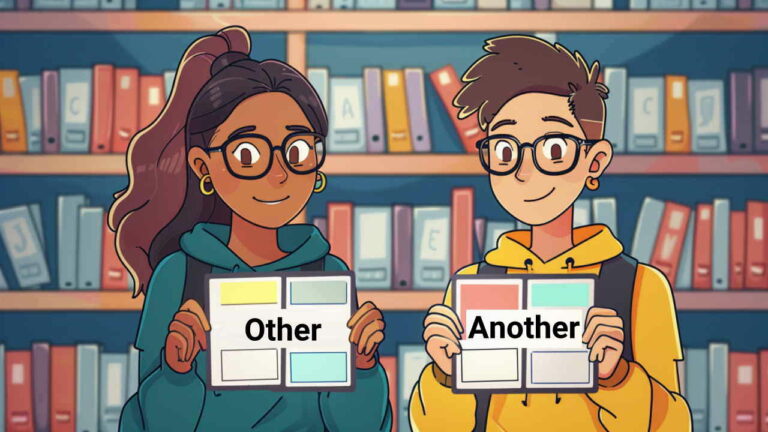۱۸ تمرین اسپیکینگ آیلتس برای تقویت و رسیدن به نمره مطلوب

آزمون آیلتس چهار مهارت اصلی زبان انگلیسی را ارزیابی میکند. این مهارتها با بخش «Listening» شروع میشود که از ۴۰ سوال تشکیل شده است و داوطلب پس از پاسخ دادن به آنها وارد بخش دوم یعنی «Reading» میشود. در این بخش تعدادی متن در نظر گرفته شده است که سوالاتی برای آن طراحی شده است. داوطلب پس از پاسخ دادن به آنها به بخش سوم یعنی «Writing» مراجعه میکند. پس از اتمام بخش سوم، آزمون کتبی نیز به پایان میرسد. اما بخش آخر یعنی «Speaking» به صورت شفاهی و در حضور شخص آزمونگیرنده، به فاصله یک هفته قبل یا بعد از آزمون برگزار میشود. به منظور آمادگی در آزمون آیلتس، لازم است تمرین کافی برای هر یک از این مهارتها داشته باشید. برای مثال میتوانید بعد از یادگیری تکنیکهای پاسخ دادن به سوالات هر بخش، آزمونهای سالهای قبل را نیز تمرین کنید. در این آموزش از مجموعه آموزشهای راهنمای آزمونهای زبان انگلیسی «مجله فرادرس» قصد داریم با بخش اسپیکینگ آشنا شویم و ۱۸ تمرین اسپیکینگ آیلتس را در اختیار شما قرار دهیم. همچنین به نحوه نمرهدهی اسپیکینگ آیلتس اشاره خواهیم کرد تا با زدن تستها و مشاهده پاسخ آنها، بتوانید ارزیابی خوبی از روند پیشرفت خود داشته باشید و به نمره مطلوبی دست پیدا کنید.
نحوه تمرین اسپیکینگ آیلتس
برای اینکه بتوانید برای اسپیکینگ آماده شوید، لازم است ابتدا با نحوه تمرین اسپیکینگ آیلتس آشنا شوید. درواقع، باید بدانید که به چه راهکارهایی برای تقویت مهارت اسپیکینگ نیاز دارید تا بر اساس آنها آمادگی لازم برای آزمون را به دست بیاورید. البته کسب مهارت برای همه بخشهای آزمون امری ضروری به شما میرود. برای مثال، اگر میخواهید برای بخش «Reading» یا «Listening» آماده شوید، لازم است ابتدا انواع سوالات آن را یاد بگیرید و تکنیکهای پاسخ دادن به هر یک را تمرین کنید. سپس، وقتی در این امر تسلط کامل پیدا کردید، به سراغ آزمونهای ماک آیلتس بروید که شامل نمونه سوالات آزمونهای سالهای قبل هستند. بدین ترتیب میتواند با نحوه تمرین اسپیکینگ آیلتس آشنا شوید.
هدف از این آموزش، تمرین اسپیکینگ آیلتس برای تقویت و رسیدن به نمره مطلوب است. اما با توجه به توضیحاتی که داده شد، قبل از تمرین کردن و تست زدن، لازم است با نحوه تمرین کردن برای این بخش آشنا شویم. برای مثال، قبل از هر چیز باید درباره ساختار اسپیکینگ آیلتس بدانیم. آشنایی با نحوه نمرهدهی اسپیکینگ آیلتس نیز میتواند تأثیر زیادی در بهبود نمره ما داشته باشد، چراکه اگر معیارهای نمرهدهی این بخش را بدانیم، میتوانیم آنها را در تمرینهای خود مدنظر داشته باشیم و مطالعه را بر اساس این فاکتورها پیش ببریم.
به همین منظور، ابتدا ساختار اسپیکینگ آیلتس را به طور کامل توضیح میدهیم و برای این کار از نمونه سوالات آزمونهای سالهای قبل کمک میگیریم. سپس فاکتورهای نمرهدهی اسپیکینگ آیلتس را بررسی میکنیم و در ادامه ۱۸ تمرین اسپیکینگ آیلتس را با پاسخ در اختیار شما قرار خواهیم داد تا به کمک آنها توانید مهارت اسپیکینگ را تقویت کنید و به نمره دلخواه خود دست پیدا کنید. همچنین در رابطه با تقویت اسپیکینگ آیلتس به نکات مهمی اشاره خواهیم کرد.
ساختار اسپیکینگ آیلتس
این بخش در مجموع سه قسمت مختلف دارد و مدت زمان آن در مجموع ۱۱ تا ۱۴ دقیقه است. بخش اول بین ۴ تا ۵ دقیقه طول میکشد و فرد مصاحبهکننده تعدادی سوال با موضوعات شخصی، مانند محل سکونت، شغل، دانشگاه و غیره مطرح میکند. در بخش دوم که مدت زمان آن ۳ تا ۴ دقیقه است، شخص مصاحبهکننده «Cue Card» در اختیار داوطلب قرار میدهد که در آن یک سوال کلی و سه سوال فرعی مرتبط با موضوع اصلی نوشته شده است. داوطلب یک دقیقه فرصت دارد تا به آن فکر کند و سپس باید به مدت دو دقیقه درباره آن صحبت کند. در بخش سوم هم چند سوال دیگر مرتبط با پاسخهایی که در بخش دوم داده شده مطرح میشود که داوطلب باید به آنها پاسخ دقیق دهد.
بخش اسپیکینگ به صورت جداگانه و شفاهی برگزار میشود. در ابتدا آزمون کتبی شامل سه بخش «reading» ،«listening» و «writing» است که پس از اتمام آن، بخش اسپیکینگ به صورت مصاحبهای رودررو با شخص آزمونگیرنده انجام میشود. البته بلافاصله بعد از آزمون کتبی انجام نمیشود. معمولاً ببین یک تا ۵ روز بعد از آزمون کتبی برگزار میشود یا تاریخ آن میتواند قبل از آزمون کتبی باشد.
برای نمره دادن به این بخش، مصاحبهکننده معمولاً معیارهای مختلفی را بر اساس استانداردهای تعیینشده در نظر میگیرد. این معیارها مواردی مانند روان و درست صحبت کردن، استفاده از دستور زبان متنوع و واژگان مناسب و پاسخ دادن کامل به هر یک از سوالات است. با دانستن فاکتورهای نمرهدهی، بهتر میتوانیم از عهده این بخش از آزمون بربیاییم و آمادگی بیشتری کسب کنیم.
نمره دهی اسپیکینگ آیلتس
همانطور که در ابتدای مطلب اشاره شد، تمرین اسپیکینگ آیلتس نیازمند آشنایی با مواردی از قبیل نوع سوال، روشهای پاسخ دادن به هر سوال و در نظر گرفتن فاکتورهای نمرهدهی آیلتس است. سوالات بخش اسپیکینگ و رایتینگ آزمون آیلتس را استادی متخصص تصحیح میکند و این نمرهدهی سلیقهای نیست. یعنی بر اساس معیارهایی در نظر گرفته میشود که به طور استاندارد برای هر یک از این بخشها تعیین شده است.
برای اینکه بتوانیم نمره خوبی در بخش اسپیکینگ آزمون آیلتس به دست بیاوریم و حین تمرین اسپیکینگ آیلتس شاهد پیشرفت تدریجی خود باشیم، بهتر است این معیارهای نمرهدهی را بشناسیم تا بتوانیم با توجه به آنها مطالعه را پیش ببریم و اگر در هر بخش مشکلی داریم، آنها را رفع کنیم. در جدول زیر میتوانید این معیارها را مشاهده کنید.
| جدول معیارهای نمرهدهی اسپیکینگ | |
| Grammatical Range and Accuracy | Fluency and Coherence |
| Pronunciation | Lexical Resource |
«Fluency» به معنای روانی کلام است. هر چقدر داوطلب روانتر صحبت کند و کمتر مکث کند، نمره بهتری میگیرد. البته این فقط یکی از معیارهای نمرهدهی اسپیکینگ است. موارد دیگری نیز در این رابطه اهمیت دارد. برای مثال، معیار دوم، یعنی «Lexical Resource» نیز به شما میگوید که برای کسب نمره خوب در آزمون اسپیکینگ آیلتس باید دامنه واژگان خود را تقویت کنید. سعی کنید هر کلمهای را که یاد میگیرید، با کالوکیشن تمرین کنید یا از کلمات مناسب در جای مناسب خود استفاده کنید. در این صورت شانس افزایش نمره این بخش را خواهید داشت.
مورد دیگر در نمرهدهی اسپیکینگ آیلتس «Pronunciation» است. هر چقدر تلفظ واژگان درستتر و به زبان مادری شبیهتر باشد، بدون شک نمره بهتری را از آن خود خواهید کرد. تلفظ کلمات و جملات شما باید به گونهای باشد که مخاطب شما کاملاً متوجه حرفهای شما بشود. بنابراین، رعایت مواردی نظیر استرس کلمات انگلیسی یا استرس جملات میتواند نتیجه مطلوبی در نمره نهایی شما داشته باشید.
درست صحبت کردن همان معیاری است که در اسپیکینگ آن را «Accuracy» مینامیم. یعنی علاوه بر اینکه داوطلب باید از روانی کلام برخوردار باشد و جملههایش را سلیس و فصیح به مخاطب خود منتقل کند، باید درست هم صحبت کند. درست صحبت کردن به معنای استفاده از واژگان مناسب و همچنین دستور زبان انگلیسی است. وقتی گرامر مناسبی را به کار میبریم، سطح زبان و میزان تسلط خود را به رخ مخاطب میکشیم و این یکی از فاکتورهای مهم در نمرهدهی آیلتس است. بنابراین، باید این نکته را در نظر داشته باشیم که از دستور زبان مناسبی استفاده کنیم و زمانهای درستی را به کار ببریم.
۱۸ تمرین اسپیکینگ آیلتس
قبل از هر چیز ابتدا درباره موضوعات پرتکرار اسپیکینگ آیلتس صحبت میکنیم. برخی از موضوعاتی که به وفور در آزمونهای قبلی آیلتس شاهد آنها بودهایم را تحت عنوان موضوعات پرتکرار اسپیکینگ آیلتس دستهبندی میکنیم. اگر نمونه سوالات مربوط به این موضوعات را تمرین کنیم، ممکن است با برخی از آنها در روز مصاحبه مواجه شویم و در نتیجه با اطمینان بیشتری به آنها پاسخ خواهیم داد. در جدول زیر میتوانید برخی از موضوعات پرتکرار اسپیکینگ آیلتس برای بخش اول را مشاهده کنید.
| موضوعات پرتکرار اسپیکینگ آیلتس - بخش اول | ||
| culture/tradition | Internet | study |
| weather | leisure time | work |
| transport/traveling | music | hometown/living place |
| going out | neighbors & neighborhood | home/accommodation |
| hobbies | newspapers | family |
| going out | pets | friends |
| food/cooking | reading | clothes |
| daily activities | music | gifts |
| sport | shopping | daily routine |
در جدول بعدی موضوعات پرتکرار اسپیکینگ آیلتس برای بخش دوم را مشاهده میکنید.
| موضوعات پرتکرار اسپیکینگ آیلتس - بخش دوم | ||
| Describe a time you helped someone | Describe a historical place or building | describe a person |
| Describe a fashion trend or clothing item | Describe a food or meal | Describe a place |
| Describe a memorable conversation | Describe a problem and suggest a solution | Describe an object or possession |
| Describe a technology you can't live without | Describe a piece of art or creative work | Describe an event or experience |
| Describe a book that had a significant impact on you | Describe a childhood memory | Describe a hobby or interest |
| Describe a famous landmark or tourist attraction | Describe a favorite teacher or mentor | Describe a change |
| Describe an animal you find interesting | Describe a recent news event | Describe your future plans or goals |
| Describe a time you faced a difficult decision | Describe a place you like to study or work | Describe a cultural festival or celebration |
| Describe an important decision you had to make in your life | Describe a memorable cultural festival or celebration | Describe a piece of advice you received |
در جدول بعدی موضوعات پرتکرار اسپیکینگ آیلتس برای بخش سوم را مشاهده میکنید.
| موضوعات پرتکرار اسپیکینگ آیلتس - بخش سوم | ||
| Art and Creativity | Social Issues | Education |
| Ethics and Morality | Hobbies and Leisure Activities | Technology |
| Government and Politics | Transportation | Work and Employment |
| Social Responsibility | Economy and Finance | Environment |
| Cultural Diversity | Media and Advertising | Health and Lifestyle |
| Aging Population | Crime and Justice | Family and Relationships |
| Artificial Intelligence (AI) | Science and Research | Travel and Tourism |
| Fashion and Consumerism | Social Media | Culture and Traditions |
| Global Health Issues | Education and Career Planning | Globalization |
همانطور که اشاره شد، اسپیکینگ آیلتس از سه بخش تشکیل شده است. برای هر بخش نمونه سوالاتی در نظر گرفته شده که با تمرین کردن آنها میتوانید نمره بهتری در روز آزمون کسب کنید. در این بخش از مطلب ۱۸ تمرین اسپیکینگ آیلتس را برای هر سه بخش از سوالات ارائه میدهیم. برای هر یک نمونه پاسخی نیز لحاظ شده است تا بتوانید آن را معیاری برای تمرین بیشتر و رفع نقاط ضعف خود بدانید. هر یک از سوالاتی که به عنوان تمرین اسپیکینگ آیلتس در اختیار شما قرار داده شده، مربوط به آزمونهای سالهای قبل است و موضوعات مختلفی را پوشش میدهد.
تمرین اسپیکینگ آیلتس برای بخش اول
در بخش اول، مصاحبهکننده سوالاتی را از داوطلب میپرسد که بیشتر جنبه معارفه دارد و برای کسب اطلاعات بیشتر مطرح میشود. سوالاتی درباره شغل داوطلب یا محل سکونت او، همچنین درباره علایق و سرگرمیهای او یا مواردی از این قبیل. در این بخش داوطلب باید به سوالها پاسخ کامل بدهد. یعنی با دادن پاسخهای کوتاه، فرد مصاحبهکننده نمیتواند متوجه مهارت اسپیکینگ داوطلب شود. در ادامه به چند نمونه سوال بخش اول اشاره کردهایم. پاسخ نوشتاری آنها را نیز میتوانید مطالعه کنید تا با کمک گرفتن از دستور زبان، واژگان و همچنین تکنیکهای بهکاررفته در پاسخ دادن به سوالات، نقاط ضعف خود را بشناسید.
تمرین اول
به نمونه تمرین اسپیکینگ آیلتس توجه کنید. فایل صوتی و نسخه نوشتاری برای پاسخ هر یک از سوالات را نیز میتوانید در ادامه مشاهده کنید.
متن سوال و جواب
Let’s talk about your hometown or village.
- What kind of place is it?
- What’s the most interesting part of your town/village?
- What kind of jobs do the people in your town/village do?
- Would you say it’s a good place to live? (Why?)
Examiner: Now, in this first part, I’d like to ask you some more questions about
yourself, OK?
Let’s talk about your hometown or village. What kind of place is it?
Candidate: It’s quite a small village, about 20km from Zurich. And it’s very quiet. And we have only little ... two little shops because most of the people work in Zurich or are orientated to the city.
Examiner: What’s the most interesting part of this place ... village?
Candidate: On the top of a hill we have a little castle which is very old and quite well known in Switzerland.
Examiner: What kind of jobs do people in the village do?
Candidate: We have some farmers in the village as well as people who work in Zurich as bankers or journalists or there are also teachers and some doctors, some medicines.
Examiner: Would you say it’s a good place to live?
Candidate: Yes. Although it is very quiet, it is … people are friendly and I would say it is a good place to live there, yes.

تمرین دوم
به نمونه تمرین اسپیکینگ آیلتس توجه کنید. فایل صوتی و نسخه نوشتاری برای پاسخ هر یک از سوالات را نیز میتوانید در ادامه مشاهده کنید.
متن سوال و جواب
What natural sounds do you like the most? (Why?)
Hmm, that’s an interesting question. I’m quite a morning person, and furthermore, I find nothing more relaxing than the sound of birds chirping. I find that sound to be so fresh, which helps me to start my day energetically. Even though I live in a big city now, it takes me back to my childhood in the countryside.
What sounds do you dislike? (Why?)
My biggest pet peeve is the sound of honking. They drive me mad! I find this noise almost unbearable, mostly because it’s a loud, abrupt sound that instantly disturbs my peace. Furthermore, it’s usually the sound of a frustrated or angry driver, which makes it even more unpleasant.
I’m quite a light sleeper, I get irritated by the noises around me. I’d have to say the most aggravating noise is the sound of a barking dog. It’s so shrill! I find it very disturbing and almost impossible to focus on anything else. Moreover, it makes me sad to know that a dog is in such a state of distress that they must bark like that.
What type of noise do you come across in your daily life?
Well, quite a cacophony! It varies from the sound of screaming matches from the partners and families in my apartment, street sellers shouting out their products for all to hear, motorbikes speeding by, all the way to the sound of blaring horns. I would say that the sound that defines my city most would be the sound of horns. As it has major traffic issues and undefined lanes on the roads, it is quite natural that the sound of horns would fill the streets.
تمرین سوم
به نمونه تمرین اسپیکینگ آیلتس توجه کنید. فایل صوتی و نسخه نوشتاری برای پاسخ هر یک از سوالات را نیز میتوانید در ادامه مشاهده کنید.
متن سوال و جواب
Do you like science?
That’s an interesting question. Science was thrust on me as a mandatory subject, and it was never my favourite. I found the topics quite fascinating, especially biology and chemistry, but I was not able to understand easily. However, I always wished that I was better at science since it’s a life-oriented subject.
What’s the most difficult part of studying science?
The mathematical aspect of it. Since I’ve never been good at Math, this is the area of Science that kept me down (prevented me from succeeding). For example, I got decent grades in Biology class, but Chemistry and Physics were a huge struggle for me due to the Mathematical nature of them.
How has the science that you have studied helped you?
Although I’m not conscious of it, I will not deny that Science has been beneficial. I see how Biology, Life Science, Anatomy, Chemistry, and Ecology have helped me understand my body and the world around me better, including animals. Furthermore, Chemistry has helped me to understand the chemical make-up of the items around me and what causes explosive reactions. For example, I know I should not drop mentos in my Diet Coke!
تمرین چهارم
به نمونه تمرین اسپیکینگ آیلتس توجه کنید. فایل صوتی و نسخه نوشتاری برای پاسخ هر یک از سوالات را نیز میتوانید در ادامه مشاهده کنید.
متن سوال و جواب
Leisure time
What do you like to do in your free time?
I do quite a lot of sport actually. I play football mostly - on Wednesday nights and Sunday afternoon with a local team. I also play tennis and squash when I can but I don't really get the time to do them as well every week. I work quite hard at the moment, so I don't get a lot of free time unfortunately.
Have your leisure activities changed since you were a child?
Not a great deal actually. I used to love playing football when I was young as well - I played a lot at school. Though of course I did all the other things kids loved to do such as going out on bike rides after school and things.
Do you prefer to spend your free time alone or with other people?
It depends on my mood really. I think most people need some time on their own. Sometimes my work is quite stressful and I spend a lot of time there with others, so it's good to just get home and relax and read a book or something. But I get bored if I am alone too much so I like to go out and meet friends in the evening or play football.
تمرین پنجم
به نمونه تمرین اسپیکینگ آیلتس توجه کنید. فایل صوتی و نسخه نوشتاری برای پاسخ هر یک از سوالات را نیز میتوانید در ادامه مشاهده کنید.
متن سوال و جواب
Books
What kind of books do you like to read?
I mostly like to read biographies. I'm not sure why but it is interesting to read about people's real lives, especially when they have had interesting lives and have had to deal with many problems. I do read fiction as well, but I often find it difficult to get hold of a book that I really like. I also like reading about books to do with current affairs.
Do you read the same kind of books now that you read when you were a child?
Not really, no. Actually I didn't read that much when I was a child, but if I did it was mainly fiction books, such as fairy tales. Things like The Lion, The Witch, and the Wardrobe. Fantasy things.
When do you think is the best time to read?
I think any time is ok, but when I read I like to concentrate, so I can't read for a short time like on a bus ride like some people do. I like to put time aside to enjoy it. So if I have some free time at the weekend I might read for a few hours. And I nearly always read before I go to bed - this really helps me to sleep.
تمرین اسپیکینگ آیلتس برای بخش دوم
بخش دوم «Cue Card» است و شخص مصاحبهکننده به شما کارتی میدهد که در آن سوالی نوشته شده است. در کنار آن نیز چند سوال مرتبط هست که داوطلب یک دقیقه فرصت فکر کردن به آنها را دارد. سپس باید به مدت دو دقیقه درباره آنها صحبت کند. برای آمادگی در این بخش، به چند تمرین اسپیکینگ آیلتس اشاره کردهایم. پاسخ برخی از داوطلبان سالهای قبل را نیز میتوانید برای هر یک مشاهده کنید.
تمرین اول
به نمونه تمرین اسپیکینگ آیلتس برای تسک دوم توجه کنید. فایل صوتی و نسخه نوشتاری آن نیز در ادامه آورده شده است. سعی کنید اشتباهات گرامری داوطلب را حین صحبت کردن تشخیص دهید.
متن سوال و جواب
Describe something you own which is very important to you.
You should say:
- where you got it from
- how long you have had it
- what you use it for
- and explain why it is important to you.
فایل صوتی و متن نوشتاری جواب
Examiner: Alright? Remember you have one to two minutes for this, so don’t worry if I stop
you. I’ll tell you when the time is up.
Candidate: OK
Examiner: Can you start speaking now, please?
Candidate: Yes. One of the most important things I have is my piano because I like playing the piano. I got it from my parents to my twelve birthday, so I have it for about nine years, and the reason why it is so important for me is that I can go into another world when I’m playing piano. I can forget what’s around me and what...
I can forget my problems and this is sometimes quite good for a few minutes. Or I can play to relax or just, yes to … to relax and to think of something completely different.
Examiner: Thank you. Would it be easy to replace this, this piano?
Candidate: Yes, I think it wouldn’t be that big problem but I like my piano as it is because I have it from my parents, it’s some kind unique for me.
تمرین دوم
به نمونه سوال تسک دوم توجه کنید. فایل صوتی و نسخه نوشتاری جواب نیز در ادامه آورده شده است.
Describe a time you looked for information from the internet
You should say
- When you did that
- What did you search for
- Why you looked for it on the internet
فایل صوتی و متن نوشتاری جواب
I’m going to tell you about how I used the internet to look for information about social events online. I had just moved to Seoul and didn’t know a soul (didn’t know anyone), so I began searching on Facebook. I found an ex-pat page called “Expats in Seoul” which became one of my greatest resources for meeting locals and ex-pats in the city. I came to believe that social media can be a great blessing (something great)!
It’s been ten months in Seoul now, so I began this search during my first month here. I initially wanted to find a meditation group and a language exchange group, and I found it by scrolling up and down the feed. I also wrote a post on my own. Countless people informed me about events in the area. From the first month, I have been attending a meditation group every Thursday and have met several friends via the ex-pat meet up. Since then, I’ve expanded my horizons (opened up more opportunities for myself) and even began attending a Philosophy Forum on Wednesdays and have joined a yoga club, too!
I decided to opt for the internet to start building my social life because I didn’t see many other options, as I am a freelancer. With this said, I don’t have co-workers, and I’m a bit standoffish (shy; doesn’t approach people) when I go out to the bar. Although you must use your judgment when meeting people from the internet, I think it can be a great tool when you arrive in a new city, alone. I find it, quite an efficient way to put yourself out there (put effort into) to meet others. Although it can be a curse at times, I certainly feel thankful for it!
تمرین سوم
به نمونه سوال تسک دوم توجه کنید. فایل صوتی و نسخه نوشتاری جواب نیز در ادامه آورده شده است.
You should say:
- when and where it was
- why you talked to this tourist
- what you talked about
and explain how interesting this conversation was.
فایل صوتی و متن نوشتاری جواب
We get many foreign visitors every year in my country. Of course, they don’t visit my small town that often, but still, I get to see them once in a while. And when I see them, I do try to chat with them just like I did with one international traveller about a few years ago.
It was during the summertime when he visited my town. I saw him for the first time, walking on the same street where I was riding my bicycle. I didn’t really care to pay much attention to him, but just after taking a quick glance at him, I realized that he was of European origin with very fair skin and blonde hair. But, when I saw him the next day, walking at a brisk speed on the same street, I decided to have a chat with him. So, I stopped my two-wheeler and walked towards him. Seeing me walking towards him, he smilingly said "hello" to me as if he was expecting me.
After exchanging greetings, I asked him if the weather was too hot for him since he was sweating profusely. In response, he told me with a very radiant smile that he actually could do that his whole life! Later, he also told me with a serious face that the world was big enough for everybody and yet, we can’t travel from one place to another, freely, meaning there were just too many regulations for world citizens to move freely from one country to another.
By the way, I stopped to have that conversation with him because I wanted to tell him that he would probably get sick, walking like that in such hot weather. But, in the end, I thought that it was a rather interesting conversation because it taught me how we take so many things in our life (like sunshine and warm weather) for granted. Besides, because of that little talk, I learned that there were still many people in this world who, just like me, didn’t like the artificial separation between humans and countries, imposed by the governments.
تمرین چهارم
به نمونه سوال تسک دوم توجه کنید. فایل صوتی و نسخه نوشتاری جواب نیز در ادامه آورده شده است.
Describe an activity you do to stay healthy or fit.
You should say:
- what the activity is
- when and where you usually do it
- how you do it
and explain how this activity helps you keep healthy or fit.
فایل صوتی و متن نوشتاری جواب
Health is wealth, and therefore, everybody should take their fitness issue seriously to live a happy and healthy life. Needless to say, one of the best ways to remain fit and healthy is to try some kind of physical activity, and today here, I would like to talk about one such activity that I try at least 4 days a week.
The activity, I try, is known to many as “jogging”. But, before coming into the habit of “jogging”, I used to run fast every once in a while, but the problem with that activity – running fast, that is – was that I used to sweat profusely and eventually get very tired as a result of that. Of course, it was not much of a problem during the winter season, since I almost didn’t sweat at all during that time, but during the summer, it was quite opposite. In fact, because of that excessive sweating at times, I thought that I was going to stop running during the summertime, especially, when the weather was a bit too hot, until one of my good friends had come along and advised me to do “jogging” (or running at a “ slow and steady” speed) instead of running fast.
Needless to say, my friend’s advice worked just fine for me as far as the issue of sweating was concerned. Now, I enjoy jogging every other morning, and sometimes, during the evening too when I am on holiday or vacation, at a nearby public garden where I live. Sometimes, I do jogging on pavements too when the garden is a bit too crowded for my liking. By the way, when I jog, I do take some rest from time to time so that I don’t get too tired before reaching home.
I really enjoy this activity because it not only helps me burn the extra fat in my body but also keeps my heart healthy. Besides, this activity revitalize my lung also since I get to enjoy lots of fresh air in the public garden which is full of many large trees.
تمرین پنجم
به نمونه سوال تسک دوم توجه کنید. فایل صوتی و نسخه نوشتاری جواب نیز در ادامه آورده شده است.
Describe a photo you have taken that you are proud of.
You should say:
- when you took this photo
- what type of camera you used
- who were in the photo
and explain why you are proud of this photo.
فایل صوتی و متن نوشتاری جواب
One of my favourite pastime activities is to look at my old photos and talk about them with others. The wonderful capabilities of cameras in preserving our memories also fascinate me a lot, but that’s not what I should really be talking about here. Rather, I should be talking about a picture, I took, that made me proud.
Now, I can think of quite a few shots which I am proud of, but the photo certainly stands out the most among the crowds is the one that I took during my college graduation programme about 4 years ago. But, the most interesting thing about this picture was that it was not even captured by my own camera. In fact, I didn’t even own a camera back then, apparently, because I was just too “young” (according to my parents, that is) to own a camera! But, just because I didn’t own a camera, that didn’t mean that I was willing to let my college graduation ceremony pass without taking any pictures!
After all, it was a “once in a lifetime” thing, meaning I had to have a camera with me during my graduation ceremony, and so I ran to a distant uncle of mine (may God bless his kind heart) to borrow his “canon EOS” full-frame, mirrorless, 30-megapixel camera, the best and the most technologically advanced camera I had seen up and until that point. Not to mention, of course, I immediately fell in love with that camera and took it on my graduation day to capture some of the finest pictures with the finest memories.
But, out of all those fine pictures, I am very proud of that particular picture, where my loving parents and two best friends are found just in front of me, because it beautifully presented the most important persons in my life, without who I probably wouldn’t be able to come this far in my life. In fact, it was probably because of this particular theme that this picture won an online photo competition several years ago, an achievement of which I am also very proud!
تمرین اسپیکینگ آیلتس برای بخش سوم
در بخش سوم سوالاتی مطرح میشود که به نوعی به پاسخ شما به سوال بخش دوم بستگی دارد. برای این بخش، لازم است پاسخهای دقیق و با جزئیات بیشتر بدهید. به چند تمرین اسپیکینگ آیلتس برای بخش سوم توجه کنید. پاسخ آنها نیز در ادامه آورده شده است تا بتوانید به کمک آنها تمرین کنید.
تمرین اول
به نمونه تمرین اسپیکینگ آیلتس برای بخش سوم توجه کنید. فایل صوتی و نسخه نوشتاری پاسخ سوالها نیز در ادامه آورده شده است.
Part 3 – Two-way discussion
Let’s consider first of all how people’s values have changed.
- What kind of things give status to people in your country?
- Have things changed since your parents’ time?
- Finally, let’s talk about the role of advertising.
- Do you think advertising influences what people buy?
متن سوال و جواب
Examiner: We’ve been talking about things we own. I’d like to discuss with you one or two more general questions relating to this topic. First, let’s consider values and the way they can change. In Switzerland, what kind of possessions do you think give
status to people?
Candidate: The first thing which comes in my mind is the car. Yes, because lots of people
like to have posh cars or expensive cars to show their status, their place in the society.
Examiner: Is that a new development?
Candidate: No, I think it isn’t.
Examiner: People have thought like that for quite a long time?
Candidate: Yes. Another thing is probably the clothing. It starts already when you are young.
When the children go to school they want to have posh labels on their jumpers or good shoes.
Examiner: What do you think of this way of thinking, that I need to have a car or certain
clothes to show my status?
Candidate: Probably it’s sometimes a replacement for something you don’t have, so if your
wife has left you or your girlfriend, you just buy some new, I don’t know, new watches or new clothes to make you satisfied again.
Examiner: You don’t think of it as a healthy way of thinking?
Candidate: It’s probably not honest to yourself. You can understand what I mean?
Examiner: Yes. And do you think this will change? In the future, will cars and designer clothes be status symbols in the same way?
Candidate: I’m sure that clothes will be ... that the thing with the clothes will be the same. I’m
not so sure about the cars because cars cause lots of environmental problems and probably in some years, a few years, this will change because it’s not reasonable to drive a car anymore.
Examiner: Can you tell me a little bit more about that?...
تمرین دوم
به نمونه تمرین اسپیکینگ آیلتس برای بخش سوم توجه کنید. فایل صوتی و نسخه نوشتاری پاسخ سوالها نیز در ادامه آورده شده است.
- Is family important in your country?
- How has the size of the family changed in the last few decades in your country?
- How do you think the family will change in the future?
- What role do grandparents play in the family in your country?
- Who do you think should be responsible for the care of the elderly, the family or the government?
- Why is the number of joint families decreasing in modern time?
متن سوال و جواب
Q. 1: Is family important in your country?
Answer: Thank you for this question. Well, people in my country believe that family comes first and they put their family ahead of anything else. They would do anything for the family and I am proud that family bonding in my country is quite strong.
Q. 2: How has the size of the family changed in the last few decades in your country?
Answer: From my experience, I can say that my grandfather had an extended family and people at that time used to live together with close relatives. As far as I have heard, their forefathers also live in a joint family and the number of family members was sometimes more than twenty. However, the trend of living in an extended family has changed remarkably in cities where most of the families are nuclear in nature. The villages in my country still have large families who live together but the number is shrinking day by day.
Q. 3: How do you think the family will change in the future?
Answer: I believe more people will have a nuclear family and the size of the family will be small in the future. People do not like to have more than two children nowadays and who knows they will consider having one baby policy in the distant future. The very norm that a man gets married to a woman and have their own children to form a family is being challenged by the concept of same-sex marriage and this trend will increase in the future.
Q. 4: What role do grandparents play in the family in your country?
Answer: Grandparents in a family are like the pillars of virtue and they play an important role. They maintain a balance for the family by nurturing the old traditions and values and teach how to adhere to the roots. With the increasing number of both working parents, grandparents often look after the children. They often advise the rest of the family time to time regarding family matters as they have more experience and thus their advice often saves us from taking wrong decisions. From this sense, they act like reliable mentors.
Q. 5: Who do you think should be responsible for the care of the elderly, the family or the government?
Answer: I believe the family has the major responsibility to look after their elder family members and support them personally as they did in their youth age. These senior citizens have sacrificed a lot throughout their lives to form a family and then to make them happy. The young members should do everything in their power to accompany their elder members and provide them with their necessities.
Having said that, the government has some responsibilities as well. These elder members were once taxpayers and thus they deserve healthcare, entertainment and other facilities from the state.
Q. 6: Why is the number of joint families decreasing in modern time?
Answer: I believe the city-centric life which is highly competitive and busy has diminished the concept of joint family and created the nuclear family. Besides the urban influence, ever-increasing inflation, our affection towards a materialistic life and less inclination towards the traditions and values have ended up making our own nuclear family.
تمرین سوم
به نمونه تمرین اسپیکینگ آیلتس برای بخش سوم توجه کنید. فایل صوتی و نسخه نوشتاری پاسخ سوالها نیز در ادامه آورده شده است.
IELTS Speaking Part 3 Topic: Sports and Competition
- Why are some sports fans so passionate?
- Is there any violence at sporting events in your country?
- Should athletes be better role models?
- What benefits do international sporting events bring?
- Is it important for a country to win lots of medals?
- The money professional sportsmen earn is significantly higher than that the earnings of other professionals. Is it justified?
متن سوال و جواب
Q. 1: Why are some sports fans so passionate?
Answer: I believe some people love sports than other forms of entertainment and competition and they always follow their favourite sports on TV. ‘Watching and playing sports’ is their favourite leisure activity while many of those passionate fans once were players themselves and played the game in their youth. Growing up, they see their family, friends, and city go wild when a goal is scored or a game is won. So, it’s natural to follow other’s enthusiasm and cheer for their local teams. Such attachment often increases their love for sports. In my country, many youths are ardent fans of football and they have their favourite teams. When their favourite team plays, they take every opportunity to support them and sometimes go to the stadium to show their support. Sportsmen are often idolized by youths and they love to follow their favourite sportsmen as enthusiastic followers.
Q. 2: Is there any violence at sporting events in your country?
Answer: Generally speaking, such violence is very rare in my country. However, a dispute among fans are quite common and most of the time they are verbal than physical. They often take social networking platforms and blogs to criticise their rivals. I can, however, recall a very unfortunate event that took place probably three or four years ago when the fans of two completing teams got agitated and three people died due to this incident while several others were critically injured. The security of the stadium has been revamped to address such unexpected events and hopefully, it wouldn't happen again.
Q. 3. Should athletes be better role models?
Answer: I believe most fans start adoring an athlete or a sportsman due to the spectacular performance he or she shows. Thus football magicians like Cristiano Ronaldo or Lionel Messi have several million fans and many of them started idolising them without knowing them personally. However, when these youths start following their favourite sportsmen or athletes, they sometimes follow them blindly. Thus considering the impact, famous sports personality should always try to lead exemplary lives as thousands of others mimic them. They are also famous and the media is always watching them. Any bad conduct can bring controversy to their fame and they should try to become better role models for youths as it is a social and moral responsibility for any celebrity.
Q. 4. What benefits do international sporting events bring?
Answer: International sporting events bring nations together and eliminate the tension and hostility among them. Such an event is highly popular and can be a great reason for people to enjoy the competition in the stadium. Thus such competitions foster tourism and help local businesses to flourish. Such prestigious events sometimes encourage young children all around the world to take some sort of sports. This is good for spreading the essence of sports globally and I think sports have economic, political and cultural impacts on society.
Q. 5. Is it important for a country to win lots of medals?
Answer: I believe every country wants to win as many trophies as possible since it represents how great a nation is in sports and athleticism. Being at the top of the medallist is often considered a great achievement but I personally believe that it is not absolutely necessary. Participating in international sporting events like the Olympic is often inspiring for many small nations. A few medals could be often satisfying and inspiring for them. The most important thing in an international sporting competition is being able to perform and enjoy it, not the number of medals won. When athletes and sportsmen from all around the world gather at a common platform, they not only represent their own country but also the whole humanity and this is important for maintaining global peace and harmony.
Q. 6. The money professional sportsmen earn is significantly higher than that the earning of other professionals. Is it justified?
Answer: I think a very few fortunate sports celebrities earn a hefty amount of money while most others do not. Considering the training, dedication, challenge and sacrifice that are part of their lives, the earning, in my opinion, is justified. We have to keep in mind that their career is short spanned and they earn because they perform really well. The payment to those celebrities is high because people buy tickets when they perform and different companies that earn millions of dollars each day want them as brand ambassadors. Since these payments are legit and transparent, I do not see any problem if they earn a lot.
تمرین چهارم
به نمونه تمرین اسپیکینگ آیلتس برای بخش سوم توجه کنید. فایل صوتی و نسخه نوشتاری پاسخ سوالها نیز در ادامه آورده شده است.
IELTS Speaking Part 3 Topic: Historic Place
- How do people in your country feel about protecting historic buildings?
- Do you think an area can benefit from having an interesting historic place locally? In what way?
- What do you think will happen to historic places or buildings in the future? Why?
- How were you taught history when you were at school?
- Are there other ways people can learn about history, apart from at school? How?
- Do you think history will still be a school subject in the future? Why?
متن سوال و جواب
Q. 1: How do people in your country feel about protecting historic buildings?
Answer: I believe people from my country would want to protect and preserve important historic buildings except maybe a few who put business ahead of their morality and rational thinking. We had our moments when people spontaneously protested the plan to demolish such sites in the past. Due to a huge public backlash and outcry, the authority had been forced to abandon their plan to build multi-storied commercial buildings by smashing the old buildings that have historical significance. Thus citizens in my country are sensitive about protecting anything that has historical importance.
Q. 2: Do you think an area can benefit from having an interesting historic place locally? In what way?
Answer: Definitely an area with an interesting historic place can reap the benefits from different perspectives. First, such a place would attract a huge number of tourists and help grow different local businesses. Besides, such areas are strategically important for the local government and it can bring more development projects to the area. The government takes extra measures to protect such areas from natural disasters and thus get more attention. On top of that, the flourishing tourism of the area spreads the local custom and tradition to other parts of the country. Thus the development of such a region occurs faster than other areas.
Q. 3. What do you think will happen to historic places or buildings in the future? Why?
Answer: That is hard to tell and all would depend on the future generation. If they feel that such locations and buildings are worth preserving, the authority would take steps to protect them. Otherwise, many of them, which are less internationally known, would disappear and would be converted to ultramodern commercial buildings. Prominent sites, on the other hand, would be preserved as they will attract many international tourists. Some of them will be debilitated due to the lack of maintenance and a few new ones would emerge as historic places and buildings in the distant future. The main reason some of the historic places and building will disappear is that they are less popular and can't sell tickets to tourists. So the authority or the owner would like to convert them for business purpose. The urbanisation, pollution and the need for more buildings for the increasing population are threats to such historic sites.
Q. 4: How were you taught history when you were at school?
Answer: Our teachers mainly taught us history from the textbooks and we were lucky to have a few amazing teachers who explained how history is important to understand the future. They often explained important events and characters from history and told us how these events and powerful men have shaped future events. We were required to study history books and watch documentaries made on real historical facts and those were not included in our syllabus. Thus we were able to learn more about history. Our school authority took us to different museums and historic sites, generally two to three times a year, and those excursions were our chances to explore more and witness the artefacts from the past. I can recall one particular occasion when we were taken to a war museum and we learned how wars that we hate so much had such profound impacts on our human society.
Q. 5: Are there other ways people can learn about history, apart from at school? How?
Answer: I believe reading about history and researching them online is the best way to learn more about it. What we learn about history in our school is just the beginning. To truly explore the past, we need to read a lot of books and the book choices should be based on the interests of the readers. The Intenet is an amazing tool that can help us learn about our past and the interactive videos found on different websites are truly helpful. It offers us to dive deeper into history. Finally, travelling is an excellent way to learn about the world we live in and how this world was shaped by different civilisations. Someone who travels extensively learns about history faster and witness history instead of assuming them.
Q. 6: Do you think history will still be a school subject in the future? Why?
Answer: I believe history is not merely a collection of past events, stories of civilisations and powerful characters. It is rather a way to look at the future. Thus the importance of history in the future will increase and more students would be interested to learn about it than today. We are yet to comprehend the full potential of history and it is still frowned upon as a subject for weaker students. But in the future, we will realise how important it is for people to learn it for a prosperous future. So I do not see any reasons history will disappear from the school syllabus.
تمرین پنجم
به نمونه تمرین اسپیکینگ آیلتس برای بخش سوم توجه کنید. فایل صوتی و نسخه نوشتاری پاسخ سوالها نیز در ادامه آورده شده است.
IELTS Speaking Part 3 Topic: Films/ Cinema
- Do you think the cinema has increased or decreased in popularity in recent years?
- In your opinion, will this trend continue in the future?
- What are the advantages and disadvantages of making films of real-life events?
- How important do you think it is for a filmmaker to remain true to the original story?
- Should films and television be censored or should we be free to choose what we see?
- How do you think censorship laws will change in the next 20 years?
متن سوال و جواب
Q. 1: Do you think the cinema has increased or decreased in popularity in recent years?
Answer: That's a bit complex issue as the answer might seem paradoxical. Well, I heartily believe that more people enjoy movies today than ever before but most of them do not go to a movie theatre to enjoy a movie. Thus the cinema halls have lost their glorious days, especially in my country, but an increasing number of people make time to watch movies either on TVs or on their computers. Gone are the days when my parents used to take me to a movie theatre and that was once in a while. These days we enjoy more than 3-4 movies a week but do not go to a cinema hall at all. I believe the popularity of international movies, low-quality local movies and amenities to get great movie-viewing experience at home are the reasons for this shifting trend.
Q. 2: In your opinion, will this trend continue in the future?
Answer: Unless radical changes are brought to the cinema halls and restrictions are imposed on the way we stream and watch the latest movies at home, the trend will continue in the future. Movie theatres would lose their attractions further and technology would assist us to watch movies on demand at home. However, some people will still go to the cinema with friends and family to enjoy a movie on a day out.
Q. 3: What are the advantages and disadvantages of making films of real-life events?
Answer: Among the advantages, I assume, those movies have a ready-made plot, the storylines are already popular and the producer can think of characters easily. Such movies often win awards considering their historical values and are positively taken by the audience and critics.
However, there are some drawbacks in making such movies based on real-life events. First and foremost, people and critics scrutinise such movies more thoroughly and they are often subject to controversy. Secondly, the story is already known to people and the movie has to promise something more than its storyline. Furthermore, making such movies require a huge sum of money and they often end up poorly in the box office.
Q. 4: How important do you think it is for a filmmaker to remain true to the original story?
Answer: I believe true facts from history should be intact in a movie and every filmmaker should adhere to the truth as much as possible while making a movie based on a real-life event or a prominent historical figure. Otherwise, the film would end up receiving resentments and negative criticism from ordinary viewers as well as from movie critics. Sometimes, a filmmaker needs to add some surprises and twists to make such a movie more appealing but they can always do so by not distorting the main facts. We should keep in mind that children who watch such movies often take them as evidence of real events from history. So such movies should not misrepresent history and invite controversy.
Q. 5: Should films and television be censored or should we be free to choose what we see?
Answer: I believe some sort of censorship is required in the TV and film industry so that we can enjoy movies and watch TV programmes without embarrassments and getting offended. For instance, if I start watching a movie with my parents and the film has too many sensual and violent scenes, we would feel embarrassed. Since movies have a major impact on the viewers' mind, we should not allow too much violence, hatred and offensive scenes to be shown. However, I also believe that creative artists should be allowed to express their feelings and thoughts through these media. Hence, too much tight censorship, that we see in some countries, is not desirable as well. We, as adults, might often choose what we want to watch but we should always monitor what our youngsters are watching for their own good.
Q. 6: How do you think censorship laws will change in the next 20 years?
Answer: Well, that's a tough question to answer, but I will nevertheless try! In my opinion, after two decades or so, some first world countries, where censorship laws are too much flexible, would find themselves amending laws to make it more a bit rigid. While an opposite approach would be taken in developing countries to give more freedom to creative artists. All countries, in my opinion, will try to make a balance in censorship laws to make it more friendly and helpful to the viewers.

نمونه سوال اسپیکینگ آیلتس با جواب
تا به اینجای مطلب، تمرین اسپیکینگ آیلتس را برای هر یک از بخشها به طور جداگانه ارائه کردیم. در این بخش از مطلب، قصد داریم فایلهای صوتی نمونه سوال اسپیکینگ آیلتس را برای هر سه بخش اول، دوم و سوم در اختیار شما قرار دهیم. متن نوشتاری هر یک از بخشها را نیز در ادامه میتوانید مشاهده کنید. این فایلها از نمونه سوالات اسپیکینگ آیلتس سالهای قبل انتخاب شده است.
سوال و جواب بخش اول
در ادامه میتوانید نمونه تمرین اسپیکینگ آیلتس را برای بخش اول مشاهده کنید. نسخه نوشتاری آن نیز در ادامه آمده است.
Home
-Do you live in a house or a flat?
Answer = I live in a house which is located on the outskirts of a small town. I’ve lived there for almost 5 years with my parents.
Which is your favourite room?
Probably the sitting room. To be honest, we all spend most of our time in the sitting room because it’s the cosiest room in the house. It’s much nicer than all the other rooms in our house.
-Can you describe it?
Well, it’s not particularly large but even so, it feels quite spacious. There are two huge comfy sofas, an open fire which we light in the dark winter months and on the walls there are some rather beautiful oil paintings of country scenes from the area where we live. It’s quite a pretty room, lots of natural light.
-If you could improve one thing in your house, what would it be?
Well, if I could change just one thing, I’d probably choose to change my bedroom. At present it’s rather small with almost no view at all. If I could alter it in any way, I would enlarge it to have a private study area, where I could do some work, and I would improve the view by planting some lovely trees and shrubs outside the window. I think being able to sit at a window and see nature is really important.
Films
-Do you enjoy watching films?
Oh yes. I’m a bit of a film fanatic actually. I watch films most weekends and quite often during the week as well. I much prefer films to TV programs.
What kinds of films do you like most?
I really like a wide variety of film genres. But if I had to choose a type of film. I’d say I mainly go for suspense, and psychological thrillers. In fact, some of my favourite films are the old Hitchcock films – he really was the master of suspense.
Did you watch much TV as a child?
No, I didn’t. My parents encouraged us, that’s my brothers and me, to spend time outdoors rather than sitting inside watching TV. So we only ever had the chance to watch TV for an hour each evening before we went to bed. I can’t say it was very common because most of my friends watched loads of TV.
Are foreign language films popular in your country?
No, they’re not really that popular compared to domestic films. I mean there are some Asian films from India and China, as well as some films from Europe as well but I think having to read the subtitles puts people off watching them. It’s a shame really because I think it’s important for people to watch more foreign language films in order to learn more about other cultures.
Greeting People
-How would you greet someone who was visiting your house?
Well, I’d probably welcome them into the house and offer them a cup of tea. That’s usually the way it’s done in my country. We don’t really have any formal way of welcoming people.
-Would you greet an old friend and a stranger in the same way?
No, definitely not. If it’s a close friend whom I’ve known for a long time, I give them a hug and kiss, but if it’s just a stranger I would either shake hands with them or just say “Hello, nice to meet you” and nothing more.
-How do you meet new people?
I mainly meet new people through friends. Whenever I have dinner with a friend there’s nearly always someone there that I haven’t met before and that's how I usually extend my circle of friends.
-Do you think first impressions are important?
Oh yes. From the first time you set eyes on someone, you already form some kind of an opinion about them, about their lifestyle, their background or what kind of person they might be. That’s why I always think it’s really important to give a good impression when you meet someone for the first time.
سوال و جواب بخش دوم
در ادامه میتوانید نمونه تمرین اسپیکینگ آیلتس را برای بخش دوم مشاهده کنید. نسخه نوشتاری آن نیز در ادامه آمده است. سعی کنید اشتباهات گرامری گوینده را تشخیص دهید.
I’d like to move on now. I’m going to give you a topic to talk about. Here is some paper and a pen. You’ll have one minute to make notes and then you’ll need to speak for 2 minutes. I’d like you to talk about a holiday you recently had. Please start making notes, I’ll let you know when it’s time to begin talking.
A Holiday you Recently Had
Describe a holiday you recently had
You should say:
- Where you went
- Who you went with
- What you did there
- And why you enjoyed it
I’d like to talk about a holiday that I took to the south coast of England just two months ago. I went to a small village in a coastal region called Cornwall. It’s really well known for its dramatic coastal scenes, stunning landscape and also for its tasty food. I went with my parents who had never been to this area of England before. They’d always wanted to go but just never had the chance because of work commitments. Anyway, Cornwall is quite far from where we live so we decided that it would be better to fly there rather than take the car. The roads and traffic are notoriously bad in that part of England. On our arrival, when we found got to the little village, we found our way to the cottage we had booked which overlooked the sea. I can’t tell you how gorgeous it was there. It was just lovely. The windows of my room overlooked a little harbour and I could see all the boats coming in and out and all the seagulls flying around.
We spent most of our holiday sightseeing. We visited all the local towns and villages and tried most of the local delicacies such as fresh crab and lobster. My father is a keen fisherman so he did a bit of fishing while my mother and I relaxed in little cafés somewhere just chatting with locals. It was so relaxing.
I think the thing I’ll remember most about the holiday, will be just how friendly and welcoming all the locals were. It felt like home from home. By the time we’d finished the two week holiday, we had made loads of friends and I’m sure we’ll all keep in touch. If I ever get the chance to go back, I’d love to go and possibly stay longer, maybe for a few months. There’s still so much of the countryside that we didn’t explore, so there’ll still be plenty to see when we return.
سوال و جواب بخش سوم
در ادامه میتوانید نمونه تمرین اسپیکینگ آیلتس را برای بخش سوم مشاهده کنید. نسخه نوشتاری آن نیز در ادامه آمده است. سعی کنید اشتباهات گرامری گوینده را تشخیص دهید.
Now I’d like to talk more about holidays and travelling.
1. If you had the chance to travel anywhere, where would you go?
That’s really difficult for me to answer because there are so many places I’d like to go to. But I suppose, if I had to pick a place, I’d choose India mainly because of the incredibly landscape and also because of the fascinating culture there. I always like to go to countries which have a rich culture steeped in history and India certainly has that. I think I’d be blown away by the colours, the sounds, the aroma of amazing food and by the local people. I’ve heard that the locals are very welcoming and hospitable to foreigners. I think going to India would be a dream come true for me.
2. Why do you think some people like to travel alone?
Well, I suppose one reason could be that when you travel alone, you are completely free to do exactly what you want. You don’t need to consider anyone else when you’re planning your itinerary or when you change it. It can be quite annoying not to be able to do exactly what you want when you’re on holiday. Also, another reason why some people might prefer travelling alone is that it’s easier to make friends and meet people. What I mean is, other people are much more likely to start chatting to you when you’re on your own than if you are already with someone. So, travelling on your own can be more exciting and more interesting.
3. Do you think travel has changed much over the last few decades?
Yes, I do. It’s changed beyond all recognition really. In the past, only wealth people were able to travel, not only because of the expense but also because of the time it took to travel long distances – you know it could sometimes take days to go from one culture to another. They would either have to travel over land or by sea. Nowadays, of course, there are budget flights all over the world and anyone can afford to travel. Travel has become so cheap that it’s often cheaper to travel abroad than in your own country. So, not only is it easier to travel, it is also more accessible to the average person.
4. How does travel change people?
I guess it changes people in a number of different ways. For the individual traveller, it gives them a chance to learn about how other people live and other cultures. This helps them to become more tolerant and accepting of differences which is really important nowadays in a time when there is so much tension between cultures and religions. Also travel can affect the local cultures a lot. What I mean is, it brings foreigners to more remote places in the world where previously there was little outside contact. This can change the way they earn money and the type of work they do as instead of doing traditional jobs, they focus more on making money from the tourist industry. I think that’s quite a worry actually, because if there’s a sudden drop in the number of people travelling, local cultures will suffer as a consequence.
5. Do you think there are any disadvantages to modern travel?
Yes, for sure. I think the main drawback is of course pollution, air pollution. Because there are so many budget flights these days, it has really increased the number of people travelling by plane and the number of flights each day. This has led to serious problems with air pollution which affects the entire world not just the country with the most flights. So, I think this is a major world problem and really needs to be addressed either by reducing the number of flights or finding a cleaner energy source. Another disadvantage is that people are able to move so easily from one country to another that they almost forget their in a new country. I mean, if you take Thailand as an example, many tourists are so busy just having fun and doing what they want, that they forget they are in a relatively traditional culture and they act and dress inappropriately. I think that really is quite a disadvantage of modern travel.
نکات مهم درباره تقویت اسپیکینگ آیلتس
شاید با خودتان فکر کنید که با یاد گرفتن تکنیک پاسخدهی به سوالات و تمرین اسپیکینگ آیلتس برای این بخش از سوالات آمادگی کافی پیدا کردهاید و با اعتمادبهنفس کامل میتوانید در روز آزمون به سوالات مصاحبهکننده پاسخ دهید. اگر تا اینجای راه را رفته باشید، بخش اعظمی از روند آماده شدن برای اسپیکینگ آیلتس را پشت سر گذاشتهاید. اما اگر هنوز نمیدانید که برای تقویت اسپیکینگ چه نکاتی را باید مدنظر داشته باشید، بهتر است دست نگه دارید.
برای هر آزمونی باید آمادگی لازم را به دست آورد. آزمون آیلتس نیز از این قاعده مستثنی نیست. اما برای تقویت هر یک از مهارتهای زبانی که در روز آزمون که شما را با سوالات متعدد و متفاوتی برای سنجش هر یک از این مهارتها به چالش میکشند، لازم است نکات مهمی را نیز رعایت کنید تا شاهد کسب نمره خوب و نتیجه مطلوب باشید. در این بخش از «مجله فرادرس» به برخی از این نکات کلیدی در خصوص تقویت و تمرین اسپیکینگ آیلتس اشاره میکنیم.
- به طور منظم تمرین کنید: کلید موفقیت شما در آزمون اسپیکینگ آیلتس داشتن تمرینهای منظم و پیوسته است. سعی کنید در زندگی روزمره تا جایی که امکان دارد انگلیسی صحبت کنید و از فردی که به زبان انگلیسی تسلط دارد بخواهید که با شما گفتوگو کند. از او بخواهید که بازخوردهای خود را نیز ارائه دهد تا بتوانید به نقاط ضعف خود پی ببرید.
- پاسخها را حفظ نکنید: افرادی که فرصت کافی برای آماده شدن ندارند یا سطح زبان پایینی دارند، بیشتر به سراغ این روش میروند که در نهایت نتیجه مطلوبی به همراه نخواهد داشت. با توجه به اینکه اسپیکینگ آیلتس موضوعات متنوعی دارد که معمولاً در آزمونها تکرار میشود، داوطلبان برای هر موضوع، تعدادی جمله را از قبل و به صورت کلیشهای حفظ میکنند و در روز مصاحبه از آنها برای صحبت کردن استفاده میکنند. شخص مصاحبهکننده با افراد بیشماری برای این بخش از آزمون مصاحبه کرده است و به همین دلیل جملات یا عبارتهای کلیشهای را به خوبی میشناسد. نمرهدهی اسپیکینگ به مهارت شما در استفاده از واژگان، دستور زبان و بیانی فصیح و درست بستگی دارد نه به جملاتی که حفظ میکنید.
- از لغات سخت و ناآشنا استفاده نکنید: داوطلبان معمولاً فکر میکنند هر چقدر از کلمات سخت و غیرکاربردیتر استفاده کنند، شانس دستیابی به نمره بهتری خواهند داشت. در صورتی که اینگونه نیست. برای بهتر صحبت کردن و کسب نمره مطلوب باید واژگان مناسبی را به کار ببرید و در جای درستی از آنها استفاده کنید. آموختن کالوکیشنهای انگلیسی میتواند در این زمینه کمک زیادی بکند.
- از دستور زبان متنوعی برای صحبت کردن کمک بگیرید: آشنایی با گرامر میتواند تأثیر زیادی در تقویت مهارت اسپیکینگ داشته باشد. به کمک دستور زبان متنوع و انتخاب زمانهای درست میتوانیم به این مهم دست پیدا کنیم. بنابراین، اگر بر زمانهای انگلیسی، جملات مجهول، ضمایر انگلیسی، جملات شرطی، افعال عبارتی و مانند اینها تسلط کافی ندارید، بهتر است در دورههای ترمیک شرکت کنید تا به تدریج بتوانید شاهد پیشرفت خود باشید.
- نگران لهجه خود نباشید: لهجه در آزمون اسپیکینگ آیلتس نقش چندانی در نمره شما نخواهد داشت. البته منظور از لهجه این است که از نظر شخص آزمونگیرنده، لزوماً همه داوطلبان نباید زبان انگلیسی را مانند یک انگلیسیزبان صحبت کنند، اما مواردی مانند لحن بیان، آواشناسی، استرس روی کلمه و جمله در نمره اسپیکینگ شما تأثیر خواهد داشت.
- با فرمت سوالات از قبل آشنایی داشته باشید: یکی از مواردی که باعث میشود روز آزمون به خوبی به سوالات مصاحبه پاسخ دهید و اعتمادبهنفس کافی داشته باشید، آشنایی با ساختار اسپیکینگ آیلتس و انواع سوالات آن است. وقتی نوع سوالات هر بخش را بشناسید و نحوه تمرین اسپیکینگ آیلتس را بدانید، یکی از چالشهای بزرگ که استرس روز آزمون است را پشت سر خواهید گذاشت.
- با اعتمادبهنفس به سوالات پاسخ دهید: هر نوع استرس و نگرانی در روز آزمون ممکن است پیامدهای خوبی نداشته باشد و نمره مطلوبی حاصل نشود. به همین دلیل، قبل از مصاحبه سعی کنید از تکنیکهای آرامشبخش برای حفظ روحیه خود کمک بگیرید و همچنین به اندازه کافی تمرین اسپیکینگ داشته باشید تا بدون هیچ اضطرابی در جلسه حاضر شوید و با اعتمادبهنفس کامل به سوالها پاسخ دهید.
- هنگام تمرین کردن از دیگران بازخورد بگیرید: اگر ندانید که اشتباهات شما چیست، نمیتوانید پیشرفت قابلتوجهی داشته باشید. بنابراین، توصیه میکنیم از شخصی کمک بگیرید که تسلط کافی بر زبان انگلیسی داشته باشد تا بتوانید با او صحبت کنید و شما را ارزیابی کند. به کمک این بازخوردها به مرور شاهد پیشرفت خود خواهید بود.
- در بخش سوم از زبان رسمیتری استفاده کنید: دو بخش اول معمولاً به زبان مجاوره نیاز دارد، زیرا بیشتر درباره اطلاعات شخصی از شما سوالاتی پرسیده میشود. اما در بخش سوم موضوعات اسپیکینگ کمی تغییر میکند و بیشتر درباره مسائل اجتماعی یا مواردی از این قبیل است. بنابراین، در نظر داشته باشید که برای بخش سوم باید زبان انگلیسی رسمیتری را به کار ببرید.
- صدای خود را ضبط کنید: وقتی درباره موضوعی صحبت میکنید و حین صحبت کردن صدای خود را نیز ضبط میکنید، این فرصت را به خود میدهید که دوباره به آن بگردید و چندین بار گوش دهید. موقع صحبت کردن شاید ما متوجه اشتباهات خود نشویم. اما وقتی آن را چند بار گوش میکنیم، میتوانیم نقاط ضعف خور را بهتر تشخیص دهیم.

سوالات رایج درباره تمرین اسپیکینگ آیلتس
از آنجا که در رابطه با آزمون آیلتس ممکن است سوالاتی ذهن داوطلبان را به خود مشغول کند، لازم است به برخی از آنها اشاره کنیم تا اگر برای شما هم چنین سوالی پیش آمده باشد، بتوانید پاسخ آن را مشاهده کنید. در این بخش از مطلب به برخی از سوالات رایج در خصوص اسپیکینگ آیلتس اشاره خواهیم کرد.
آیا مصاحبه اسپیکینگ آیلتس شفاهی است یا از طریق کامپیوتر صورت میگیرد؟
بخش اسپیکینگ آیلتس به صورت شفاهی، در محل برگزاری آزمون و در حضور شخص مصاحبهکننده انجام میشود.
نمره دهی اسپیکینگ آیلتس چگونه است؟
نمرهدهی اسپیکینگ آیلتس توسط شخص مصاحبهکننده صورت میگیرد و بر اساس چند فاکتور استاندارد مانند روانی کلام، استفاده از دستور زبان مناسب، دامنه واژگان و کاربرد مناسب آنها همراه با کالوکیشنها، پاسخ دادن کامل به سوالات و استفاده از کلمات ربطدهنده مناسب محاسبه میشود. این نمره به صورت جداگانه در کارنامه داوطلب قید میشود و میانگین نمرات هر چهار بخش، نمره کل او را تشکیل میدهد.
اسپیکینگ آیلتس از چند بخش تشکیل شده است؟
اسپیکینگ آیلتس از سه بخش تشکیل شده است. در بخش اول سوالاتی مطرح میشود که بیشتر به زندگی شخص افراد مربوط است، مانند کار، سرگرمی، غذای موردعلاقه و... . در بخش دوم، سوالی به صورت «Cue Card» در اختیار داوطلب قرار میگیرد که شامل یک سوال اصلی و دو تا چهار سوال فرعی مرتبط با سوال اصلی است. در این مرحله به داوطلب یک دقیقه فرصت داده میشود تا سوال را بخواند و سپس دو دقیقه درباره آن صحبت کند.
بعد از این مرحله وارد بخش سوم میشویم. بخش سوم معمولاً با توجه به پاسخهایی که داوطلب در مرحله دوم داده است، مشخص میشود. بدین صورت که باید به سوالهایی پاسخ دهد که با جزئیات بیشتری مطرح شده است و بیشتر به موضوع بخش دوم بستگی دارد. زمان آزمون اسپیکینگ در مجموع بین ۱۱ تا ۱۴ دقیقه است و به صورت مصاحبه شفاهی و در حضور استادی مجرب که سالها در این زمینه تخصص دارد، انجام میشود.
آیا داوطلب میتواند از فرد مصاحبهکننده سوال کند؟
از شخص مصاحبهکننده میتوانید بخواهید که سوالی را تکرار کند یا در صورتی که متوجه منظور او نشدید، آن را پارافریز کند. اما نباید این کار را زیاد انجام دهید، زیرا تکرار آن در نمره شما تأثیر منفی خواهد داشت. اما در بخش دوم نمیتوانید هیچ سوالی از او بپرسید. حتی اگر معنی کلمهای را متوجه نشدید، شخص مصاحبهکننده نمیتواند کمکی به شما بکند.
سخن پایانی
اسپیکینگ مهارتی است که باید به مرور زمان و با تمرینهای منظم و منسجم به آن دست پیدا کنیم. در غیر این صورت نمیتوانیم به نتیجه دلخواهی برسیم. در این آموزش با ۱۸ تمرین اسپیکینگ آیلتس آشنا شدیم که مربوط به آزمونهای سالهای قبل بود. همچنین نمونه پاسخهای هر یک از سوالات را بررسی کردیم تا بتوانیم از آنها به عنوان الگویی برای تقویت این مهارت و رفع نقاط ضعف خود کمک بگیریم.
در ابتدای مطلب به این نکته اشاره کردیم که لازم است با ساختار اسپیکینگ آیلتس و معیارهای نمرهدهی آن آشنا شویم و سپس تکنیکهای پاسخ دادن به سوالات بخشهای مختلف اسپیکینگ را یاد بگیریم. ازطرفی، برای بهبود عملکرد خود در روز مصاحبه و دستیابی به نتیجه مطلوب میبایست نکات مهمی را در خصوص نحوه آمادگی برای آزمون بیاموزیم.
با دانستن همه این موارد، میتوانیم به اندازه کافی بر این بخش تسلط پیدا کنیم و در نهایت با تست زدن و تحلیل هر یک از اشتباهات خود، روند پیشرفت خود را ارزیابی کنیم و به نمره بهتری دست یابیم. به طور خلاصه، در جدول زیر میتوانید نحوه تمرین اسپیکینگ آیلتس را مشاهده کنید.
| نحوه تمرین اسپیکینگ آیلتس | |
| نکات مهم | روش تمرین |
| تمرین منظم | به طور منظم و پیوسته تمرین کنید و با دیگران انگلیسی صحبت کنید. |
| ضبط صدا | صدای خود را ضبط کنید و مجدداً به آن گوش دهید تا متوجه ایرادات خود بشوید. |
| تمرین موضوعات پرتکرار | به نمونه آزمونهای سالهای قبل مراجعه و موضوعات پرتکرار را مطالعه کنید. |
| تقویت واژگان | دامنه واژگان خود را گسترش دهید و از کلمات کاربردی با کالوکیشنهای مناسب استفاده کنید. |
| بهبود تلفظ | بر روی تلفظ درست کلمات و استرس آنها کار کنید. |
| پاسخ دادن به سوالات | پاسخ درست و کامل به مصاحبهکننده بدهید. از ارائه پاسخهای بیربط خودداری کنید. |
| استفاده از کلمات ربطدهنده | از کلماتی مانند «on the other hand» یا «also» و «however» برای حفظ انسجام و ایجاد ارتباط میان جملات استفاده کنید. |
| زمانبندی برای بخش دوم | برای بخش دوم به مدت دو دقیقه صحبت کنید و برای پاسخ دادن به هر یک از سوالات زمانی را در نظر بگیرید تا در این بازه زمانی بتوانید به تکتک آنها پاسخ بدهید. |
| ارائه جزئیات | با مثال و ارائه جزئیات بیشتر، از نظرات خود دفاع کنید. |
| به کار نبردن جملات کلیشهای | جملات را از قبل حفظ نکنید یا از جملات کلیشه استفاده نکنید. |
| داشتن اعتمادبهنفس | هنگام صحبت کردن اعتمادبهنفس کافی داشته باشید و آرامش خود را حفظ کنید. |
| تمرین آزمونهای ماک | آزمونهای سالهای قبل را تمرین کنید و از فایل صوتی یا پاسخ نوشتاری آنها به عنوان الگو کمک بگیرید. |
| دریافت بازخورد | از استاد یا فردی انگلیسیزبان بخواهید که به صحبتهای شما بازخورد دهد. با این کار متوجه نقاط ضعفتان میشوید. |
| به کار بردن زبان رسمی در بخش سوم | بخش سوم در مقایسه با دو بخش دیگر به زبان انگلیسی رسمیتری نیاز دارد، زیرا موضوعات آن بیشتر اجتماعی یا سیاسی است. |
| رعایت ادب و احترام در بیان جملات | لحن محترمانهای به کار ببرید و آن را تا پایان مصاحبه حفظ کنید، به ویژه در بخش سوم و در رابطه با موضوعات حساستر. |
| دانستن فاکتورهای نمرهدهی اسپیکینگ | با نحوه نمرهدهی اسپیکینگ آیلتس آشنا باشید و بر اساس آن معیارها تمرین کنید. |
مطلبی که در بالا مطالعه کردید بخشی از مجموعه مطالب «راهنمای آزمون های زبان انگلیسی» است. در ادامه، میتوانید فهرست این مطالب را ببینید:
- آیلتس چیست ؟ — هر آنچه باید درباره آزمون IELTS بدانید
- برای گرفتن مدرک آیلتس از کجا شروع کنیم؟ — راهنمای آمادگی آزمون IELTS
- آیلتس و تافل چیست؟ | همه آنچه باید قبل آزمون بدانید — به زبان ساده
- تفاوت تافل و آیلتس چیست | کجا کدام بهتر است؟ — مقایسه جامع
- بهترین منابع لغت آیلتس — لیست جامع منابع IELTS Vocabulary
- بهترین منابع Listening آیلتس – لیست جامع منابع لیسنینگ IELTS
- آزمون دولینگو چیست و مناسب کیست ؟ + منابع آزمون Duolingo
- آزمون MSRT چیست ؟ – هر آنچه باید درباره امتحان ام اس آر تی بدانید
- CEFR چیست ؟ — همه چیز درباره آزمون و Level ها
- آموزش رایتینگ آیلتس – از صفر تا صد
- تافل چیست ؟ – راهنمای آزمون TOEFL در سال 2021
- معرفی بهترین منابع شروع خواندن برای آیلتس – راهنمای موفقیت در آزمون
- نمونه رایتینگ آیلتس آکادمیک – سوال به همراه پاسخ
- راهنمای آمادگی برای آزمون آیلتس بدون کلاس – کاربردی ترین روش ها و منابع
- تفاوت آیلتس جنرال و آکادمیک چیست ؟ – آنچه باید بدانید
- لغات ضروری آیلتس با ترجمه فارسی – کاملترین فهرست
- کتاب های آیلتس جنرال که باید بخوانید — برای تقویت همه مهارت ها
- آزمون ماک آیلتس چیست ؟ + توضیح ویژگی های یک امتحان کاربردی
- آمادگی برای تافل از صفر – راهنمای شروع تا موفقیت در امتحان
- بهترین منابع ریدینگ آیلتس – آنچه برای نمره ریدینگ لازم دارید
- بهترین پادکست انگلیسی برای آیلتس – معرفی 12 پادکست کاربردی
- بهترین کتاب رایتینگ آیلتس چیست ؟ — معرفی 24 عنوان ضروری
- بهترین کتاب ریدینگ آیلتس چیست ؟ — فهرست ضروری که باید بخوانید
- ۱۲ تکنیک تقویت اسپیکینگ تافل — افزایش مهارت با راههای کاربردی
- 8 پادکست برای تقویت لیسنینگ آیلتس — معرفی و لینک دانلود
- معرفی کتاب لغات آیلتس – بهترین و ضروری ترین عناوین
- منابع خودآموز آیلتس — 20 منبع ضروری برای موفقیت در آزمون
- نحوه مطالعه برای آزمون آیلتس — از برنامه ریزی تا منابع مطالعه
- نمره دهی ریدینگ آیلتس چگونه است؟ – توضیح نحوه محاسبه
- نمونه ریدینگ آیلتس جنرال + سوال، تمرین و تکنیک های کاربردی
- نمونه سوالات آزمون دولینگو – کاملاً رایگان + جواب تشریحی
- نمونه سوالات اسپیکینگ آیلتس با جواب برای سال ۱۴۰۲
- کاربردی ترین تکنیک های ریدینگ آیلتس جنرال – نکات مهم برای موفقیت آزمون
- آمادگی برای آزمون دولینگو — راهنمای رایگان و کامل برای موفقیت
- برای گرفتن آیلتس چه کنیم ؟ – راهنمای شروع تا موفقیت در آزمون










